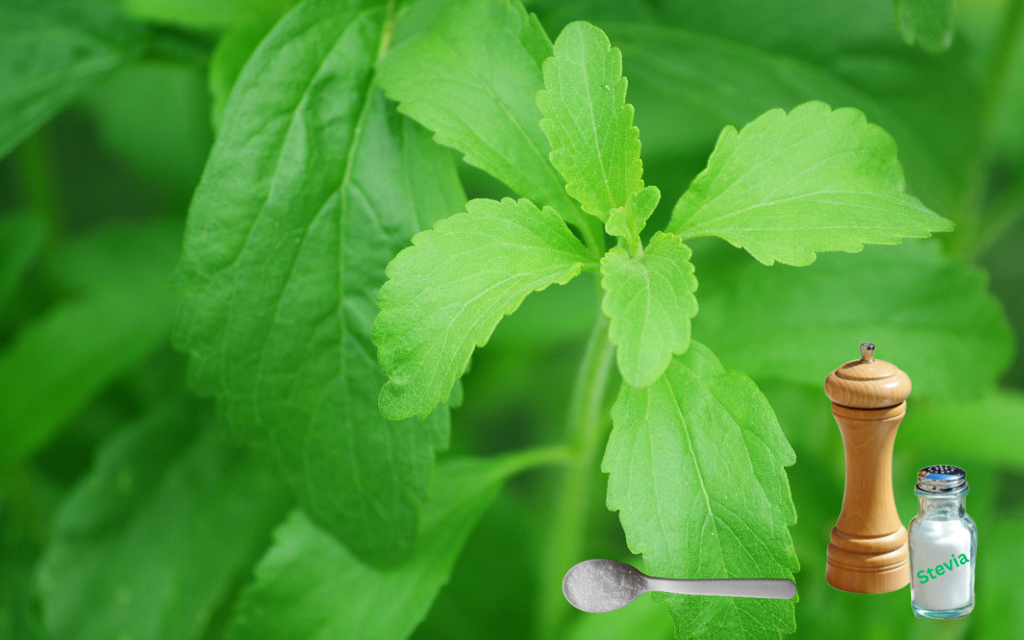
If you, like me, have suddenly become health conscious about what you eat and staying healthy, you should know that these days, many people are aware of sugary products or foods as they don’t want to end up with a sugar disease.
Thank you for reading this post, don't forget to subscribe!The main reason many go after sweeteners in place of sugar to sweeten their tea or beverage is to cut down on the total amount of sugar and calories consumed daily.
As a result, sugar and artificial sweeteners have become a huge debate in today’s world.
According to the National Library of Medicine, artificial sweeteners are beneficial and a source of help for those who intend to lose weight because most of them have reduced calories and yet satisfy the sweet taste buds’ cravings.
The Sugar Quandary
Sugar has been an age-old food made from different sources and has been considered a staple food.
Everyone enjoys the taste that sugar adds to our food, and it also makes meals more palatable while also supplying the body with energy as it is broken down into glucose.
As the saying goes, too much of everything is bad, including sugar. Overconsumption of it often results in diseases like obesity, type 2 diabetes, heart disease, etc.
The delicious appeal of sugar makes one tempted to consume more than required, unaware of its harm to our bodies.
The World Health Organization recommends a required daily allowance of 10% sugar intake, but many people find it difficult to comply.
The Rise of Artificial Sweeteners
Artificial sweeteners came onto the scene as a remedy for controlling excessive sugar cravings and their side effects.
This synthetic substance became well known for its diet-friendly benefits, particularly for those whose intention is to shed some body weight.
Saccharin, sucralose, and steviol glycosides (from the Stevia plant) are artificial sweeteners and are many times sweeter than sugar, requiring a tiny amount to sweeten your beverage.
Many soft drinks and desserts have these sweeteners incorporated into their recipes due to their low-calorie or no-calorie content.
With these in place of sugar, many drink such beverages as much as they want without feeling guilty about overindulging.
The Great Debate About Natural and Artificial Sweeteners
There is an argument about artificial and natural sweeteners, which is not a straightforward argument as taste, health, and lifestyle choices come into play in the matter.
On the other hand, sugar is regarded as a natural sweetener and, in its pure form, comes from plants like sugarcane, beets, and some fruits, which have been part of recipes for generations.
Moderation is the key, and when sugar is consumed in the right amount, health issues will be avoided.
It’s also important to keep in mind that since artificial alternatives find it difficult to replicate the sensory experience of real sugar, it may encourage attentive eating
But the advantage of artificial sweeteners is that they offer sweet satisfaction with little or no calorie intake, which is beneficial for weight watchers, blood sugar control, and diabetic management.
Artificial sweeteners also allow people to enjoy sweet flavors without causing spikes in blood sugar levels, which is an advantage for those with insulin resistance.
Finding the Balance
For those who are health conscious, there’s a need to reach a balance between sugar and artificial sweetener consumption for a healthy life balance.
1. Mindful Consumption
The key to a balanced approach lies in mindfulness. Be it sugar or artificial sweeteners you’re consuming, my advice is that you just need to be mindful of the quantity.
If you do otherwise, then your health goals become compromised.
2. Moderation is the Key
As with the saying, “Moderation is the key to life,” you do not have to stick to either sugar or artificial sweeteners; instead, consume both in moderation.
You’ll still enjoy the benefits of both without taking any health risks.
3. Educate Yourself
Knowledge is power. Get enough information about the different types of artificial sweeteners available on the market and their potential effects on your body.
Choose the one that best soothes your needs without side effects.
4. Listen to Your Body
Each person’s body is unique. Some might tolerate artificial sweeteners better than others, while others may not at all. Other people, on the other hand, may prefer the taste of natural sugar.
Take note of how your body reacts as well as your taste buds. This self-awareness will be a guide to finding the right balance for yourself.
5. Embrace Natural Sources
It is best to stick to natural sources when choosing sweeteners, such as honey, maple syrup, and some fruits. These options offer nutrients the body needs in addition to their sweet taste.
6. Homemade vs. Commercial
It’s advisable to make your own sweeteners at home if you have the time. It gives you the power to choose the components you use, enabling you to experiment with flavor combinations that are healthier and more creative.
7. Consult a Professional
In case you are in need of dietary requirements, my advice is that you seek out a dietician or a health professional.
They’ll provide you with guidance that meets your needs and goals.
Conclusion
The debate over sugar usage and artificial sweeteners is nothing but a threadbare debate.
The most important aspect is to have a balanced approach to nutrition that puts your physical health as well as food enjoyment first.
You can start on a path that not only nourishes your well-being but also pleases your palate by learning the subtleties of sugar and artificial sweeteners.
Striking the proper balance between them is necessary. Remember that moderation, careful eating, and an unyielding dedication to bettering yourself are the keys.
Eat healthy and eat well.
